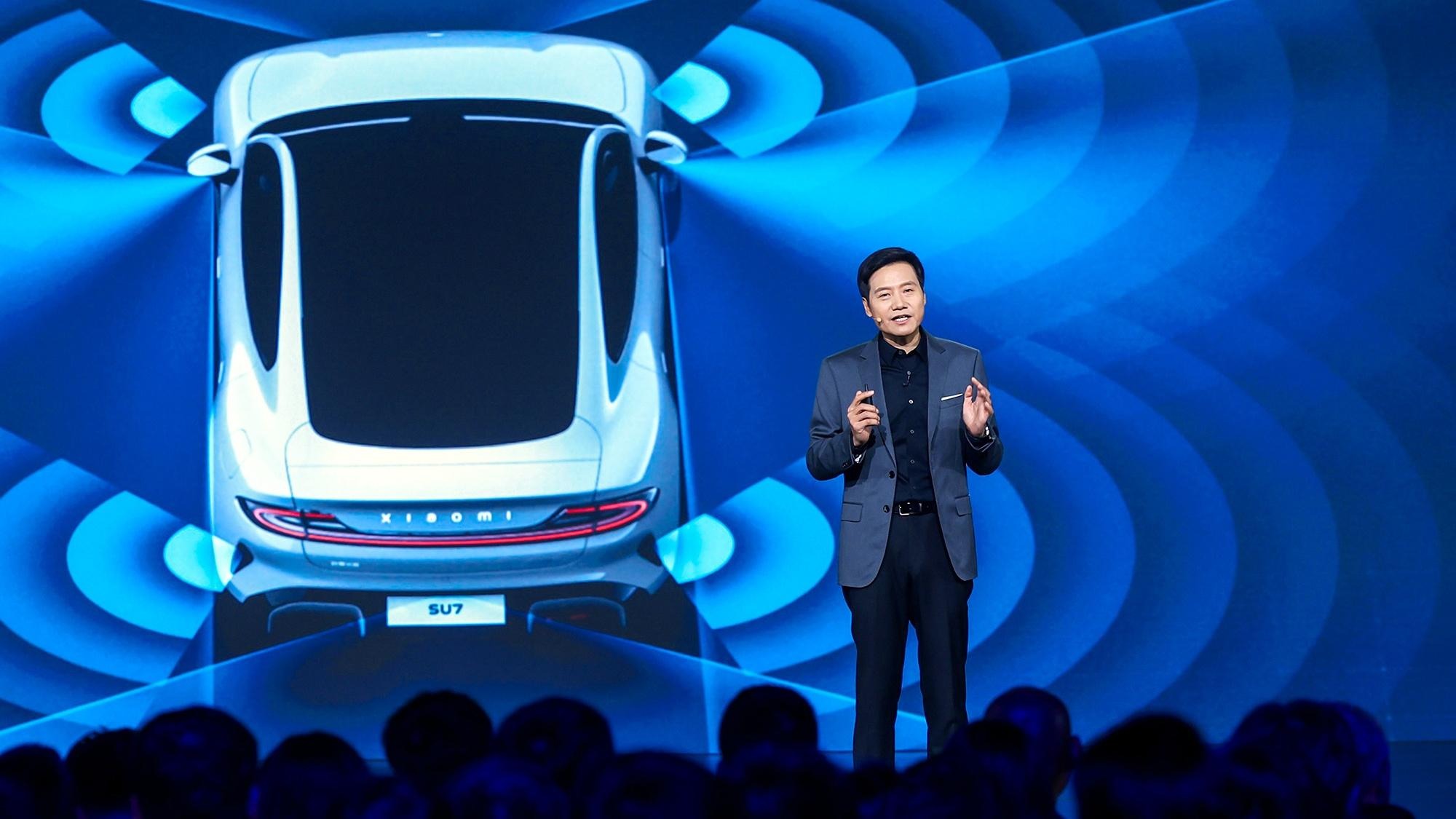
China’s Xiaomi announced that it will begin deliveries of its first electric vehicle (EV) model, the SU7, this month, entering the world’s largest car market amid a fierce price battle.
The smartphone maker, China’s fifth-largest, said in a Weibo post that it has 59 locations in 29 cities around the country that will accept orders. A launch event is set for March 28, when the new EV’s sticker tag is likely to be revealed.
Xiaomi’s shares rose 7% in morning trading. China’s EV sales increased by 18% in January-February, which is not far off the 21 percent growth forecast for the entire year 2023.
This year has witnessed a round of deeper price reductions driven by market leader BYD to entice consumers notwithstanding sluggish domestic demand.
Xiaomi Chief Executive Lei Jun stated at the introduction of the Speed Ultra 7 (SU7) sedan in December that the company aspires to be one of the world’s top five automobile manufacturers.
According to Lei, the SU7 has “super electric motor” technology that can accelerate faster than Tesla and Porsche EVs.
Analysts believe that the car’s same operating system as Xiaomi’s popular phones and other electronic devices will appeal to the company’s current customers.
Xiaomi has been looking to diversify beyond its main business into EVs in the face of stagnant smartphone demand, a strategy it originally announced in 2021.
Its vehicles will be manufactured by a unit of the state-owned carmaker BAIC Group in a Beijing factory with an annual capacity of 200,000 vehicles.
The smartphone juggernaut has vowed to invest $10 billion in automobiles over the next decade, and it is one of the few new entrants in China’s EV industry to receive approval from authorities who are hesitant to contribute to a supply glut.
Also Read: China Records an all-time High Electric Car Sale Despite Withdrawing Subsidies


































































